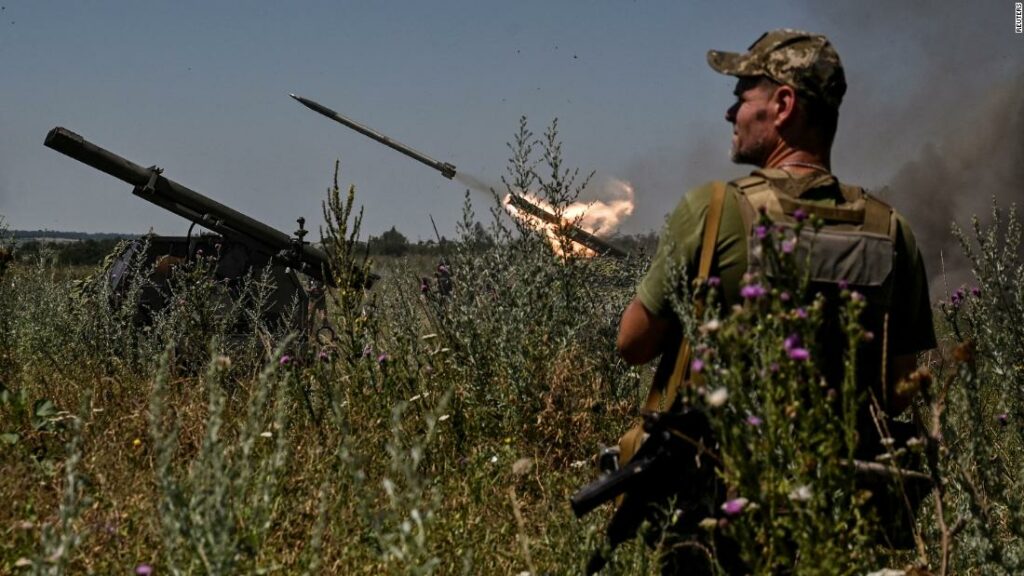Russian national accused of spying on Americans during Ukraine invasion will not be extradited from Brazil
Brazilian authorities have rejected a US request to extradite Sergey Vladimirovich Cherkasov, a Russian national accused of spying on Americans in the leadup to Russia’s invasion of Ukraine. The Ministry of Justice and Public Security in Brazil stated that the extradition request is “unfounded” because the country’s Supreme Court has already approved Cherkasov’s extradition to Russia, where he faces drug trafficking charges.
Cherkasov will only be extradited to Russia after completing his jail term in Brazil for forgery. He began serving a reduced sentence of five years and two months in July 2022.
The significance of this decision lies in the Biden administration’s efforts to secure the release of two Americans, Evan Gershkovich and Paul Whelan, who are currently detained in Russia. The US Justice Department has accused Cherkasov of working for Russia’s military intelligence service, making him a potential candidate for a prisoner swap with Russia.
Since the start of the war between Russia and Ukraine, US officials have been concerned about the possibility of Americans being used as pawns in the geopolitical dynamics surrounding the conflict. The deteriorating relations between the US and Russia have further heightened these concerns.
Cherkasov entered the United States in 2018 under the false identity of Victor Muller Ferreira, claiming to be a graduate student in Washington, DC. He established this fake identity in Brazil, where he pretended to be the son of a deceased Brazilian national. Upon his return to Brazil in 2022, he was arrested on charges of identity theft and fraud.
This development highlights the complexities and challenges faced by the Biden administration in its efforts to secure the release of American detainees in Russia. The decision by Brazilian authorities not to extradite Cherkasov adds another layer of complexity to the ongoing diplomatic efforts between the US and Russia.
It remains to be seen how this situation will unfold and whether it will impact the prospects of securing the release of Gershkovich and Whelan. The case of Sergey Vladimirovich Cherkasov serves as a reminder of the high stakes involved in international diplomacy and the intricate web of relationships between nations.
Unveiling Real-Time Updates: Russia’s Ongoing Conflict in Ukraine
Introduction:
The ongoing conflict between Russia and Ukraine has been a topic of international concern since its inception in 2014. The situation has evolved over time, with real-time updates providing crucial insights into the complexities and consequences of this conflict. This article aims to shed light on the latest developments, analyzing the key players, motivations, and potential outcomes of this protracted conflict.
Background:
The conflict in Ukraine began in 2014 when Russia annexed Crimea, a region previously under Ukrainian control. This move was met with international condemnation, leading to economic sanctions against Russia. Subsequently, pro-Russian separatist movements emerged in eastern Ukraine, leading to a full-scale conflict between Ukrainian armed forces and separatist groups supported by Russia.
Key Players:
The primary actors in this conflict are Ukraine and Russia, with each side having its own set of allies and supporters. Ukraine, a sovereign nation, seeks to maintain its territorial integrity and independence. On the other hand, Russia, under President Vladimir Putin’s leadership, aims to exert influence over Ukraine and protect the interests of ethnic Russians living in the region.
The conflict has also attracted the attention of other global powers. The United States and European Union have been vocal in their support for Ukraine, providing financial aid and military assistance. Conversely, Russia has found support from countries like Belarus and China, who have refrained from criticizing its actions.
Real-Time Updates:
Real-time updates have played a crucial role in understanding the dynamics of this conflict. News outlets, social media platforms, and independent journalists have provided a wealth of information, often in real-time, allowing the world to witness the unfolding events. These updates have helped shape public opinion, influence policy decisions, and hold the involved parties accountable for their actions.
One significant development in recent times has been the increased military buildup along the Ukrainian border by Russia. This has raised concerns among the international community, with fears of a potential escalation of the conflict. Real-time updates have allowed for the monitoring of troop movements, providing valuable insights into Russia’s intentions and potential outcomes.
Motivations and Consequences:
The motivations behind Russia’s actions in Ukraine are multifaceted. Geopolitical considerations, such as maintaining influence in the region and preventing Ukraine from aligning with the West, play a significant role. Additionally, protecting the rights of ethnic Russians and ensuring access to strategic resources, such as Crimea’s Black Sea ports, are also driving factors.
The consequences of this conflict have been far-reaching. Thousands of lives have been lost, and millions have been displaced from their homes. The conflict has strained diplomatic relations between Russia and the West, leading to economic sanctions and political tensions. Moreover, the conflict has highlighted the vulnerability of smaller nations to external aggression and the challenges of maintaining international peace and security.
Potential Outcomes:
The potential outcomes of this conflict remain uncertain. Diplomatic efforts, such as the Minsk agreements, have aimed to find a peaceful resolution, but progress has been limited. The conflict has become deeply entrenched, with both sides unwilling to compromise. A lasting solution would require a comprehensive approach, addressing the concerns of all parties involved and ensuring the protection of Ukraine’s sovereignty.
Conclusion:
Real-time updates have provided invaluable insights into the ongoing conflict between Russia and Ukraine. The situation remains complex, with geopolitical considerations, ethnic tensions, and strategic interests at play. The consequences of this conflict have been severe, impacting the lives of millions and straining international relations. As the conflict continues, it is crucial to remain informed and engaged, supporting efforts towards a peaceful resolution that respects Ukraine’s sovereignty and ensures stability in the region.









